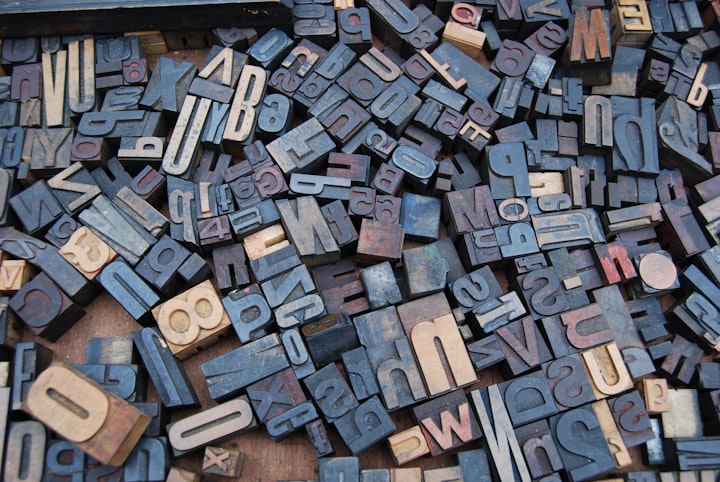
English is a truly impressive language, with a vast array of words that are interesting and quirky. Or, as I like to say, wonderful.
Words have fascinated me for a long time. They are the natural tools of the most magical occupation ever created – writing. I find it a huge privilege to spend all of my time creating artwork that both informs and entertains people.
Here are some of my favourites. Unlike most other articles, I’ve gone into more than the basic definitions of the words, including what I have been able to find out about the history of the word and how it has developed over time. Language is never static while it is living, and I would argue that there has seldom been a language quite as ‘alive’ as English.
Bathos
I had to include this, as it is a word I have only recently come across thanks to The Closer Look YouTube channel. It has several definitions, although they all revolve around works of art. It can suggest an abrupt transition in style or subject, a cliched treatment of a topic, or a lack of serious treatment of a topic, or finally, it can suggest hyperbole.
Its original use comes from 1727. Then, it had not yet been confused with the similar term pathos, and simply meant a “ludicrous anticlimax, a descent from the sublime to the ridiculous.” It comes from the Greek bathos which means “depth”, or bathys, “deep”. Unusually for Wonderful Words, I can point to the person who first used it, as it originates from Alexander Pope’s essay Peri Bathous.
Hypocrite
Today, hypocrite means “a person who acts in contradiction to his or her stated beliefs or feelings”, and this definition dates from around the early 1700s. The word itself dates back almost 500 years before that, however.
Originally coming from the Greek hypokrites, meaning “an actor”, itself coming from the word hypokrinesthai, which meant “play a part, pretend” or “answer”, it came into English from the French where it meant “someone pretending to be something they are not”. It is used in 13th century religious texts to denote someone who pretends to be morally good or pious, although in these texts it is spelt ypocrite.
Demeanour
Demeanour (or demeanor for any Americans reading this) means “the social, non-verbal behaviours that are characteristic of a person”.
This word has a complicated history. As best I can tell, it originally comes from the Latin minari, “to threaten” or “to drive (a herd of animals)”. By the time it reached Old French and had shifted into demener, meaning “to guide, conduct; to live”. It then seems to have clashed with the obsolete Middle English term demeinen, “to handle, manage, conduct”, before finally reaching its modern definition sometime in the late fifteenth century.
Ethereal
Ethereal means ‘insubstantial, unreal” or “characterised by unusual lightness and delicacy” or “suggestive of heaven or the spirit”. It entered the English language around the 1510s.
It comes from ether, a word that has come directly from Old French without any shift in spelling or meaning, where it meant “the upper regions of space”. This came from the Latin aether, “the upper pure, bright air”, and it entered Latin from the Greek aither, where the meaning was much the same. The Greek came from aithein, which meant “to burn, shine”.
The word ether was also given as a name for a volatile chemical compound for its lightness and lack of colour. This usage dates from somewhere around 1730.
Implicit
Implicit means either “implied indirectly, without being directly expressed”, or “contained in the essential nature of something but not openly shown”, or “having no reservations or doubts; unquestioningly or unconditional”. It does also have an obsolete meaning of “entangled, twisted together”.
Unsurprisingly, it first entered the language sometime around 1590 with the now obsolete definition, coming from the French implicite, which itself came directly from the Latin implicitus or implicatus, which meant “entangled, confused, involved”. By the 1600s, the more modern definitions came into use and the original meaning started to fade.
Juxtaposition
Juxtaposition means “the act of placing or the state of being placed in nearness or contiguity”. It first entered English in the 1660s, from French. There was no change in the spelling of the word or its meaning from French to English.
It ultimately comes from a strange combination of the Latin word iuxta, meaning “beside, very near, close to” and the French posicion “position, supposition”.
Maudlin
Maudlin means either “weakly and effusively sentimental” or “drunk enough to be emotionally silly”.
Interestingly, this word comes from a name. From the Middle English name Maudelen, which itself comes from the Old French Madelaine. In the Middle ages, Madelaine was believed to be identical with the repentant sinner forgiven by Jesus in Luke VII 37. Therefore, in religious artwork, she was often shown weeping as a visible sign of her repentance.
The first use of the word maudlin in its modern form comes from the early 1600s, and I cannot find any earlier references to it without including drinking, as the earliest uses seem to be as a combination term of maudlin-drunk.
About the Creator
Claire Stephen-Walker
Hi. My name’s Claire, and I spend all of my time writing. I have for as long as I can remember, because it is as close to magic as reality lets me get.






Comments
There are no comments for this story
Be the first to respond and start the conversation.